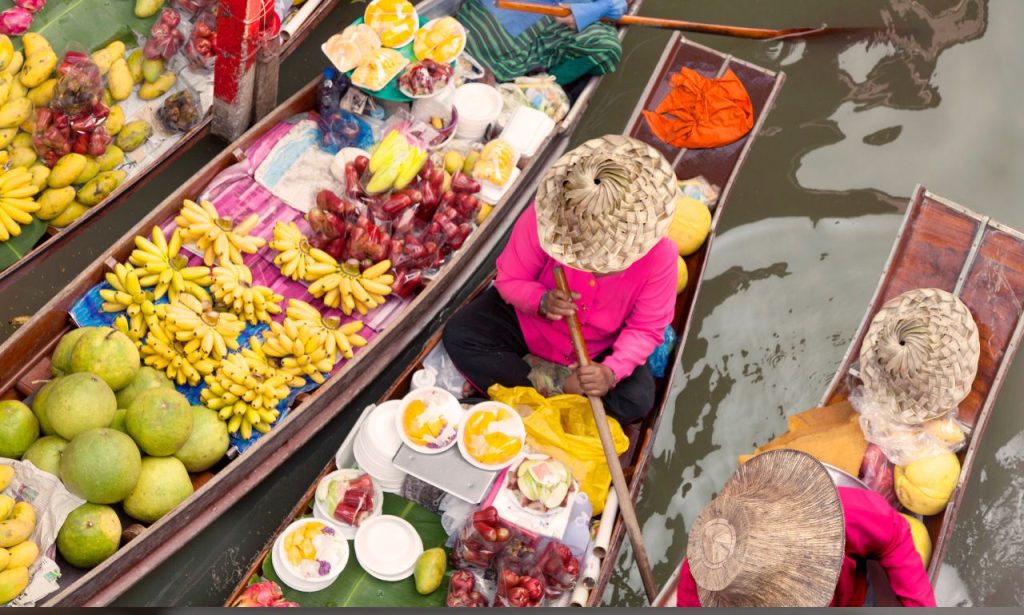Thailand, with its vibrant street food scene, aromatic curries, and world-renowned hospitality, beckons entrepreneurs with dreams of sharing their culinary passions. The question “Can a foreigner open a restaurant in Thailand?” is frequently asked, and the answer, while not as straightforward as a simple “yes” or “no,” is ultimately a resounding “yes, but…”.
This comprehensive guide will equip you with the knowledge and insights needed to navigate the exciting, yet often complex, process of establishing your own culinary haven in the Land of Smiles. From understanding the legal framework and ownership structures to securing the necessary licenses and permits, we’ll delve into the intricacies, empowering you to turn your restaurant dream into a delectable reality.
Understanding the Ownership Structure
Before diving into the specifics of Thai law, it’s crucial to grasp the fundamental ownership structures available to foreigners venturing into the restaurant business in Thailand. Each option comes with its own set of advantages and limitations, influencing your control, liability, and long-term prospects.
1. Sole Proprietorship

A sole proprietorship offers the allure of simplicity and complete control. As the sole owner, you are the business, responsible for all aspects, from decision-making to financial liabilities. However, this simplicity comes with a significant drawback for foreigners: Thai law restricts sole proprietorships to Thai nationals.
Why this matters for you: As a foreigner, the sole proprietorship route is off the table. This restriction necessitates exploring alternative structures that comply with Thai regulations while still allowing you to pursue your culinary ambitions.
2. Partnership
A partnership involves two or more individuals pooling resources and expertise to establish and operate a business. While partnerships offer the benefit of shared responsibility and a broader skill set, they present the same ownership hurdle for foreigners as sole proprietorships.
Why this matters for you: Similar to sole proprietorships, partnerships are generally restricted to Thai nationals. However, there are specific partnership structures, like limited partnerships, where foreign involvement might be possible with certain limitations. Consulting with a legal expert specializing in Thai business law is crucial to explore such options.
3. Limited Company
The limited company structure, particularly the private limited company, stands out as the most common and advantageous option for foreigners looking to open a restaurant in Thailand.
Here’s why:
- Foreign Ownership: While Thai law typically mandates 51% Thai ownership for limited companies, the restaurant industry benefits from an exception. By obtaining a Foreign Business License, you can hold 100% ownership of your restaurant.
- Limited Liability: Your personal assets are protected from business debts and liabilities, shielding you from potential financial risks.
- Credibility and Investment: The structured nature of a limited company often inspires greater trust among investors, suppliers, and financial institutions.
Why this matters for you: Establishing a limited company provides the legal framework for securing full ownership of your restaurant, mitigating risks, and attracting potential investment.
Foreign Ownership Restrictions
The ability for a foreigner to open a restaurant in Thailand hinges on understanding and navigating the country’s foreign ownership restrictions. These regulations, while designed to protect certain sectors of the Thai economy, offer pathways for foreign entrepreneurs to establish successful businesses.
The Foreign Business Act
The Foreign Business Act B.E. 2542 (1999), commonly referred to as the FBA, serves as the cornerstone of foreign investment regulations in Thailand. This act categorizes businesses into three distinct lists:
- List One: Businesses prohibited to foreigners due to national security or cultural preservation concerns.
- List Two: Businesses subject to strict conditions and often requiring special licenses or permissions for foreign involvement.
- List Three: Businesses open to foreign investment with fewer restrictions.
Where restaurants fit in: Fortunately, restaurants do not fall under the restricted categories of List One or List Two. However, they are subject to the Foreign Business License requirement, which we’ll explore in detail later.
Understanding the 51% Rule and its Exceptions
The FBA generally mandates that Thai nationals hold a majority share (51% or more) in limited companies operating in Thailand. However, the restaurant industry, recognized for its potential to boost tourism and cultural exchange, benefits from exceptions to this rule.
Why this matters for you: These exceptions pave the way for you to obtain 100% ownership of your restaurant, granting you full control over your culinary vision and business operations.
Investment Incentives for Foreigners
Thailand actively encourages foreign investment, recognizing its contribution to economic growth and job creation. As a foreign restaurateur, you can tap into a range of investment incentives designed to support your venture’s success.
The Board of Investment (BOI)
The Thailand Board of Investment (BOI) plays a pivotal role in promoting investment opportunities and offering attractive incentives to eligible businesses, including those in the tourism and hospitality sectors.
Here’s how the BOI can benefit your restaurant:
- Tax Benefits: Enjoy exemptions or reductions on corporate income tax, import duties on machinery and equipment, and other tax-related advantages.
- Non-Tax Incentives: Benefit from streamlined visa and work permit processes, permission to own land, and other facilitations to ease your business setup.
Why this matters for you: Leveraging BOI incentives can significantly reduce your tax burden, streamline administrative processes, and enhance the overall financial viability of your restaurant.
Eligibility Criteria
While the BOI offers enticing incentives, it’s essential to understand the eligibility criteria to determine if your restaurant qualifies. These criteria often include factors like:
- Minimum Investment Capital: A specified minimum investment amount, varying based on the project’s size and scope.
- Job Creation: Demonstrating the potential to create employment opportunities for Thai nationals.
- Technology and Innovation: Utilizing advanced technologies or innovative business models.
Why this matters for you: Carefully assessing your restaurant’s alignment with the BOI’s eligibility criteria is crucial to determine if you qualify for these valuable incentives.

As a foreign national opening a restaurant in Thailand, securing the proper work authorization is non-negotiable. The work permit process, while often perceived as daunting, becomes manageable with a clear understanding of the requirements and procedures.
The Work Permit
A work permit, officially known as a Non-Immigrant Visa “B” with a work permit, grants you the legal right to work in Thailand. Attempting to operate your restaurant without a valid work permit can lead to severe penalties, including fines, deportation, and even blacklisting.
Why this matters for you: Obtaining a work permit is not merely a legal formality; it’s an essential step that safeguards your business and ensures your ability to actively participate in its operations.
Conclusion
Opening a restaurant in Thailand, while presenting its own set of challenges, offers an incredibly rewarding experience for passionate entrepreneurs. By understanding the legal framework, navigating the licensing requirements, and embracing the local culture, you can turn your culinary dreams into a thriving reality.
Remember, thorough preparation, meticulous planning, and a genuine passion for food are your recipes for success in Thailand’s vibrant culinary landscape. So, take the plunge, embrace the adventure, and let your restaurant become a flavorful addition to the Land of Smiles.
ALSO READ: How to Work for Insurance Companies as a Contractor
FAQs
While prior experience in the restaurant industry is beneficial, it’s not an absolute requirement for opening a restaurant in Thailand. However, it’s crucial to possess a strong understanding of business management, financial planning, and the culinary landscape. Partnering with experienced individuals or seeking guidance from industry consultants can compensate for any lack of direct experience.
Thailand embraces culinary diversity, and there are no specific restrictions on the types of cuisines you can offer. However, it’s advisable to research local preferences and market trends to ensure your chosen cuisine aligns with local tastes and demands.
Networking within the local restaurant industry, attending trade shows, and joining online forums can connect you with reputable suppliers. Additionally, seeking recommendations from other restaurant owners or industry professionals can provide valuable insights and contacts.
Common challenges include navigating language barriers, understanding cultural nuances in business practices, and managing staff from diverse backgrounds. Building strong relationships with local partners, seeking legal and This response was limited because it hit the maximum output tokens allowed.




